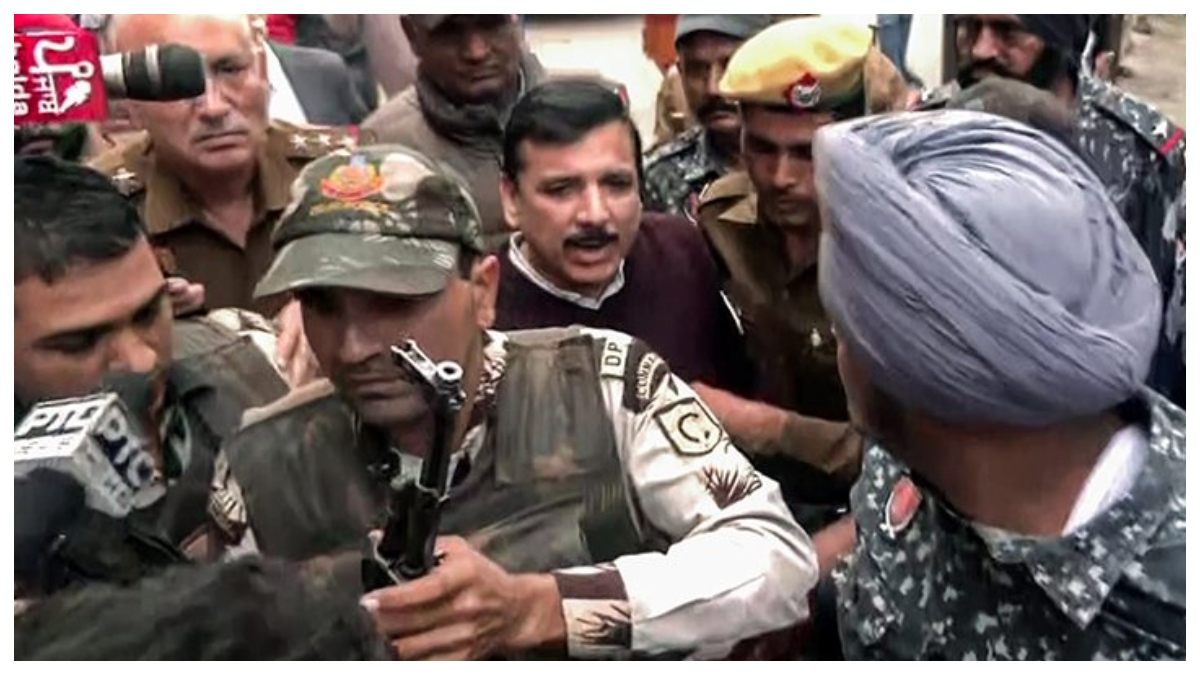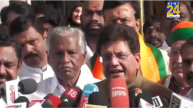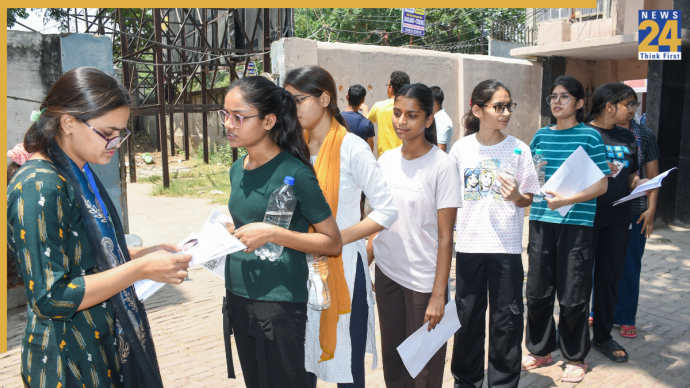The Rouse Avenue Court on Monday extended the judicial custody of Aam Aadmi Party leader Sanjay Singh in a money laundering case related to the excise policy case until December 11, 2023.
Meanwhile, the court also ordered to supply an advance copy of the supplementary chargesheet to Sanjay Singh’s lawyer and noted that the bail arguments are to be held on December 6, 2023.
Earlier during the arguments, the Enforcement Directorate filed an application stating that the names of one protected witness had been mentioned by mistake and hence the same shall not come into the public domain due to their protection. The court has reserved the order for the interim court and directed the court staff to keep the file in secrecy.
However, the court, while ordering to serve the advance copy to Sanjay Singh’s lawyer, allowed ED to remove or hide such a portion mentioning the protected witness name.
Special Justice MK Nagpal extended the judicial custody of Sanjay Singh until December 11, 2023.
The Enforcement Directorate (ED) filed a supplementary prosecution complaint (charge sheet) on Saturday against Aam Aadmi Party leader Sanjay Singh and his alleged associate Sarvesh Mishra in a money laundering case related to the excise policy case.
On October 4, senior AAP leader Sanjay Singh was arrested by the Enforcement Directorate. Sanjay Singh is presently in judicial custody at Tihar Jail.
According to the Enforcement Directorate, it’s a fifth supplementary chargesheet in the case. The charge sheet contains 60 pages of operatives and around 2,500 pages of annexures.
Sarvesh Mishra was earlier questioned several times by the ED in the case.
ED earlier told the court that Sanjay Singh was part of the conspiracy to collect kickbacks from liquor groups in the Delhi excise policy 2021-22.
Sanjay Singh allegedly had close relations with now approver Dinesh Arora, who allegedly introduced accused Amit Arora to Sanjay Singh.
Dinesh Arora was in regular touch with Sanjay Singh. This has been proven by an analysis of call detail records. Singh allegedly received proceeds from the crime of Rs 2 crore, as stated by the ED earlier.
The Special Court of Rouse Avenue Court is also examining the bail petition of Sanjay Singh, which is scheduled to come for a hearing on December 6, 2023.
Read More: AAP Leader Raghav Chadha’s Rajya Sabha Suspension Revoked
Recently, the Supreme Court issued notice to the Enforcement Directorate on Sanjay Singh’s plea against the Delhi High Court order rejecting his plea challenging his remand and arrest in the alleged liquor irregularities case.
The Supreme Court also kept it open for the petitioner to file for regular bail, if so advised and made it clear that it would be considered on its own merits by the law without being influenced by the impugned judgement.
ED earlier claimed that Singh and his associates played a part in the Delhi government’s decision to give licences to alcohol shops and merchants in 2020, causing losses to the state exchequer and violating anti-corruption laws
ED has previously searched several locations, including the homes and offices of Sanjay Singh’s close associate, Ajit Tyagi and other contractors and businessmen who allegedly benefited from the policy. In its nearly 270-page supplementary charge sheet, the ED has called Sisodia a key conspirator in the case.
The Delhi liquor scam case or the excise policy case pertains to allegations that the Arvind Kejriwal-led Delhi government’s excise policy for 2021-22 allowed cartelization and favoured certain dealers who had allegedly paid bribes for it, a charge that has been strongly refuted by the AAP.
Read More: When There Is Devotion, ‘Anti-Incumbency’ Becomes Irrelevant: PM Modi
ED filed its first chargesheet in the case last year. The agency said it has so far undertaken over 200 search operations in this case after filing an FIR after taking cognizance of a CBI case that was registered on the recommendation of the Delhi lieutenant governor.
The CBI inquiry was recommended based on the findings of the Delhi chief secretary’s report filed in July showing prima facie violations of the GNCTD Act 1991, Transaction of Business Rules (ToBR) 1993, Delhi Excise Act 2009, and Delhi Excise Rules 2010.
Source: ANI













